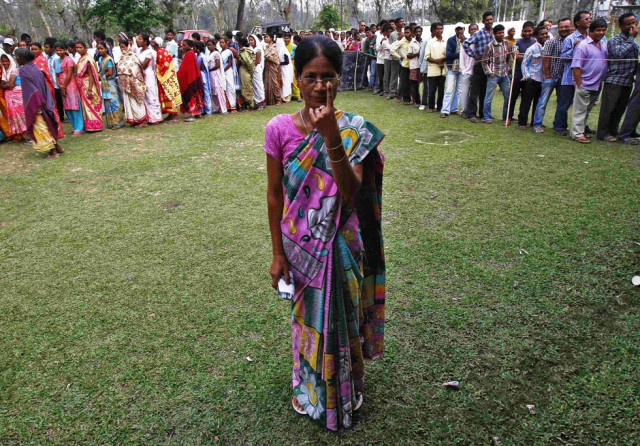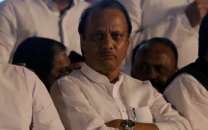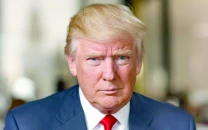Indian elections 2014: Into the unknown
The polls are likely to be one of the most uncertain in the country’s history.

A woman shows her ink-marked finger after casting her vote as others line up to cast their ballot at a polling station in Nakhrai village in Tinsukia district in the northeastern Indian state of Assam April 7, 2014. PHOTO: REUTERS
As soon as the polling dates in the world’s largest democracy were announced, the country has witnessed street clashes and stone pelting between members of the Bharatiya Janata Party (BJP) and Aam Aadmi Party (AAP) in several cities. In Delhi, police had to use water cannons to dispel protestors.
The violence broke out after police detained AAP leader Arvind Kejriwal while he was campaigning in Gujarat – BJP prime ministerial candidate Narendra Modi’s territory.
As we approach the general elections, the ruling Congress party is seen by many as the weakest. India has been gripped by an altogether different fever – that of BJP candidate Modi.
Congress has withered away in the state of Andhra Pradesh following a political split. Charges of corruption, indecisiveness, weak leadership and the state of economy have created a pervasive anti-incumbency atmosphere. The party has also lost its allies in the states of West Bengal and Tamil Nadu.
While BJP seems confident after gaining three states in recent state assembly elections, it too has been plagued by internal bickering. The party has been unable to prop up senior members against the rise of one leader.
BJP, which came to power in the state of Bihar in the previous elections, has also been set back by the loss of a major ally. The party is reeling from internal imbalances in the state of Karnataka as well.
The instability of these major players has once again given regional and smaller parties an opportunity to form a third front. The idea has been tried in India a few times. But no single party in the third front is capable of winning a reasonable number of seats in the parliament.
The emergence of AAP in Delhi state elections has already given both BJP and Congress jitters. Although it lasted a mere 50 days in power, the party is still capable of upsetting the major players.
The 2014 elections are likely to be one of the most uncertain in India’s history. This time around, a party with even low figures could get to have its say – the mark of 272 is what any party will want to achieve at any cost.
For a 21-year-old like me and other Indian youngsters, it will be interesting to see how these parties will satisfy a tech-savvy generation ready to bash those in power for their mistakes immediately on social media.
We have grown tired of both Congress and BJP, one of which is plagued by corruption charges while the other lacks a credible leadership and relies on the ideology of one man. The latter, with its communalistic ideology, is an especially tough choice.
Amid all this, the Kejriwal-led AAP seems to provide the perfect solution – a revolutionary party with a hard-hitting stance on corruption. The party also has a secular image and has many young and educated people in its fold.
Although AAP’s support mellowed down after Kejriwal resigned as the chief minister of Delhi, the party’s popularity has once again ricocheted after it fielded some notable and visionary leaders for the general elections.
While I feel India needs a change this time around – it is still tough to predict which party will gain maximum votes and go on to form the government at the centre.
Uzair Hasan Rizvi is a student pursuing Masters in journalism from AJK Mass Communication Research Centre, Jamia Millia Islamia, New Delhi, India
Published in The Express Tribune, April 7th, 2014.



















COMMENTS
Comments are moderated and generally will be posted if they are on-topic and not abusive.
For more information, please see our Comments FAQ